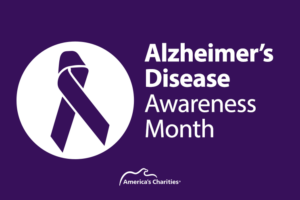Steve Delfin | January 30, 2012
Charity choice should be preserved; not condemned.
Not only has tax season arrived, but we’re also in the midst of a fiery political battle between GOP candidates contending for the position of U.S. President. Resultantly, journalists and other news media alike are all afire about the philanthropic actions of some of America’s wealthiest societal figures like Bill Gates, Mitt Romney, Warren Buffett and David Rubenstein. How much money are these multi-millionaires and billionaires gifting and writing-off on taxes? To which types of organizations and causes are they directing their mammoth-size donations?
These are the types of stories and big headlines that are currently appearing with increased frequency in the media and have drawn the attention of long-time commentator, Pablo Eisenberg (a senior fellow at the Georgetown Public Policy Institute and regular contributor to The Chronicle of Philanthropy), on philanthropy and social action. The Chronicle of Philanthropy recently posted an op-ed piece by Mr. Eisenberg titled, “Misplaced Giving Priorities of America’s Wealthy” where he questions the giving priorities and motivations of the hyper-wealthy and chastises the media for not being more skeptical and inquisitive.
In questioning the giving style of the wealthy, Mr. Eisenberg specifically references recent headlines touting multi-billionaire David Rubenstein’s recent philanthropic contributions – a $4.5-million gift to help the National Zoo care for its pandas and more recently, a $7.5-million donation to restore the Washington Monument, which suffered serious damage as a result of an earthquake this past summer. In his article, Mr. Eisenberg states:
“Such coverage is puzzling: Was a gift to pandas a matter of national interest that merited prominent treatment? Would the $7.5-million donation help solve a national societal problem?
But they are also deeply disturbing. First, they are signs of the misplaced giving priorities of the nation’s billionaires. Second, they show how lacking in skepticism the nation’s press – and so many other parts of society are – when it comes to raising tough questions about how much the wealthy give and where they direct their donations.”
“Such coverage is puzzling: Was a gift to pandas a matter of national interest that merited prominent treatment? Would the $7.5-million donation help solve a national societal problem?
But they are also deeply disturbing. First, they are signs of the misplaced giving priorities of the nation’s billionaires. Second, they show how lacking in skepticism the nation’s press – and so many other parts of society are – when it comes to raising tough questions about how much the wealthy give and where they direct their donations.”
“Such coverage is puzzling: Was a gift to pandas a matter of national interest that merited prominent treatment? Would the $7.5-million donation help solve a national societal problem?
But they are also deeply disturbing. First, they are signs of the misplaced giving priorities of the nation’s billionaires. Second, they show how lacking in skepticism the nation’s press – and so many other parts of society are – when it comes to raising tough questions about how much the wealthy give and where they direct their donations.”
As you might expect, Mr. Eisenberg’s piece has generated a robust on-line discussion among those who concur with him and those who strongly disagree. If you subscribe to The Chronicle of Philanthropy, you should certainly take a moment to read the full article and weigh in on this subject matter. For many years, Mr. Eisenberg has been a strong and valued advocate for philanthropy and social justice, and as usual his most current piece certainly makes a number of valid points. However, it is important to understand that one of the most critical and enduring aspects of American philanthropy is that the donor should always have the right to choose where his or her contributions go.
Mr. Eisenberg infers that donations contributed towards support of a zoo or to restore a national monument somehow carry less value than say supporting direct service human care organizations that are undeniably suffering from lack of support at a time when their services are most needed. On the surface it is hard to argue with that. However, there’s a degree of irony in Mr. Eisenberg’s argument because on many occasions he has also argued – quite eloquently – about the critical need to honor “choice” in individual giving. In looking through the many responses to Mr. Eisenberg’s article, a comment made by the Wildlife Alliance stood out:
“Though we vie for diminished dollars these days, may the fundraisers of the non-profit world protect the integrity of our critical industry: honoring our common work to steward donors and the gifts they freely give and honoring our uncommon causes and organizations–unique, different, intent upon improving the world.”
Mr. Eisenberg has once again done what he does best – he has made us think about important issues, opportunities and challenges in the philanthropic world. However, the idea of chastising the wealthy for their choices regarding charitable giving or criticizing the media for their coverage of that giving seems counterproductive to me. As an old public relations guy I always try to follow the adage of creating awareness leads to understanding and then to support. The hyper-wealthy read. They are not above listening. If we do a better job of creating awareness of the kinds of needs that Mr. Eisenberg points to, then that will lead to greater understanding and financial support.
That leads to my final point. Pointing fingers at the “media” is quite pointless and, frankly, a bit naïve. It’s not like the days when the New York Times or Washington Post, of the major network news shows dominated the ebb and flow of information. In today’s world there are so many media choices, channels and avenues that you can no longer blame the media. This blog is a perfect example. You can create your own media, your own awareness building efforts and you can do it by micro-targeting your audience – including the hyper-wealthy.
At the end of the day, choice is a pillar of philanthropy. We have to honor and respect that people (and that includes those with enormous personal wealth) have a right to determine how they want to express their philanthropy.
To read Pablo Eisenberg’s complete op-ed piece on The Chronicle of Philanthropy’s web site, click here.
Steve Delfin
|
Get Resources and Insights Straight To Your Inbox
Explore More Articles
Open Position: Customer Service Coordinator (Remote-Part Time)
Position Title: Customer Service Coordinator (Remote – Part Time) Department: Charitable Funds Management Solutions We are a non-profit charitable organization looking for skilled individuals who…
Read ArticleGet Resources and Insights Straight To Your Inbox
Receive our monthly/bi-monthly newsletter filled with information about causes, nonprofit impact, and topics important for corporate social responsibility and employee engagement professionals, including disaster response, workplace giving, matching gifts, employee assistance funds, volunteering, scholarship award program management, grantmaking, and other philanthropic initiatives.


 Steve has 30 years of experience working in and with major national and international not-for-profit organizations and socially-responsible international corporations, including a long history of engagement with and leadership around workplace giving and employee volunteerism programs.
Steve has 30 years of experience working in and with major national and international not-for-profit organizations and socially-responsible international corporations, including a long history of engagement with and leadership around workplace giving and employee volunteerism programs. 

